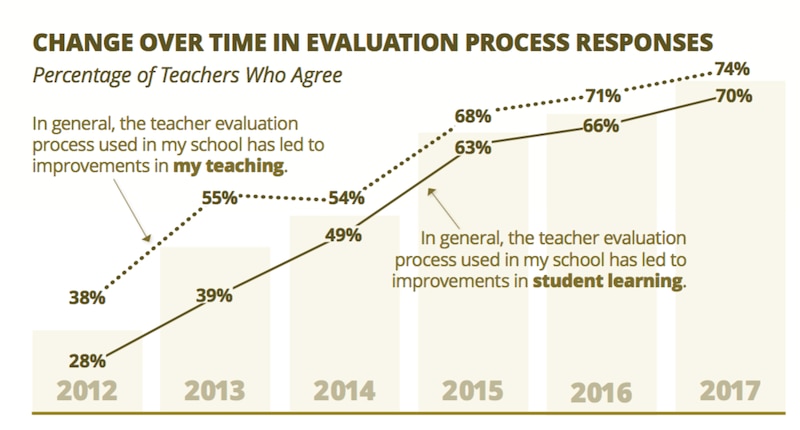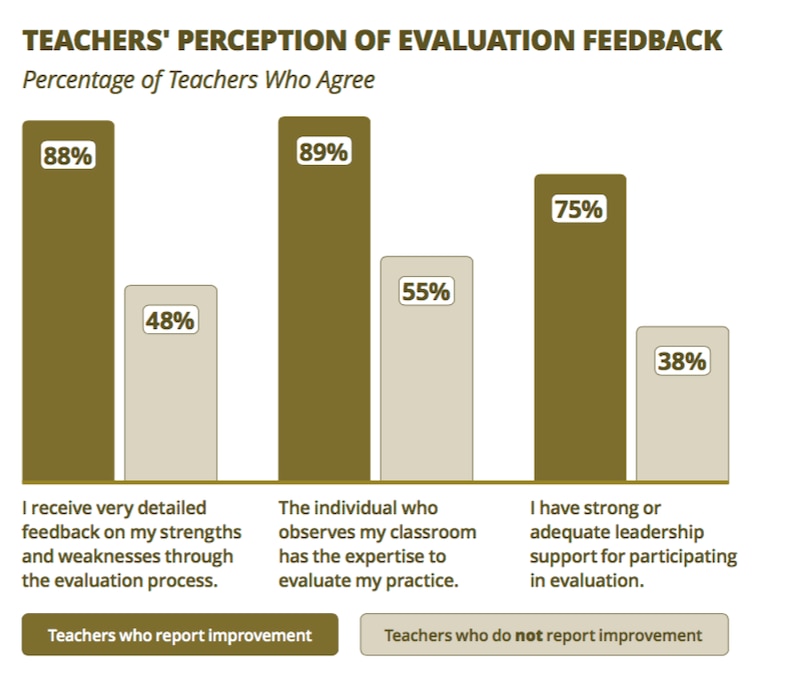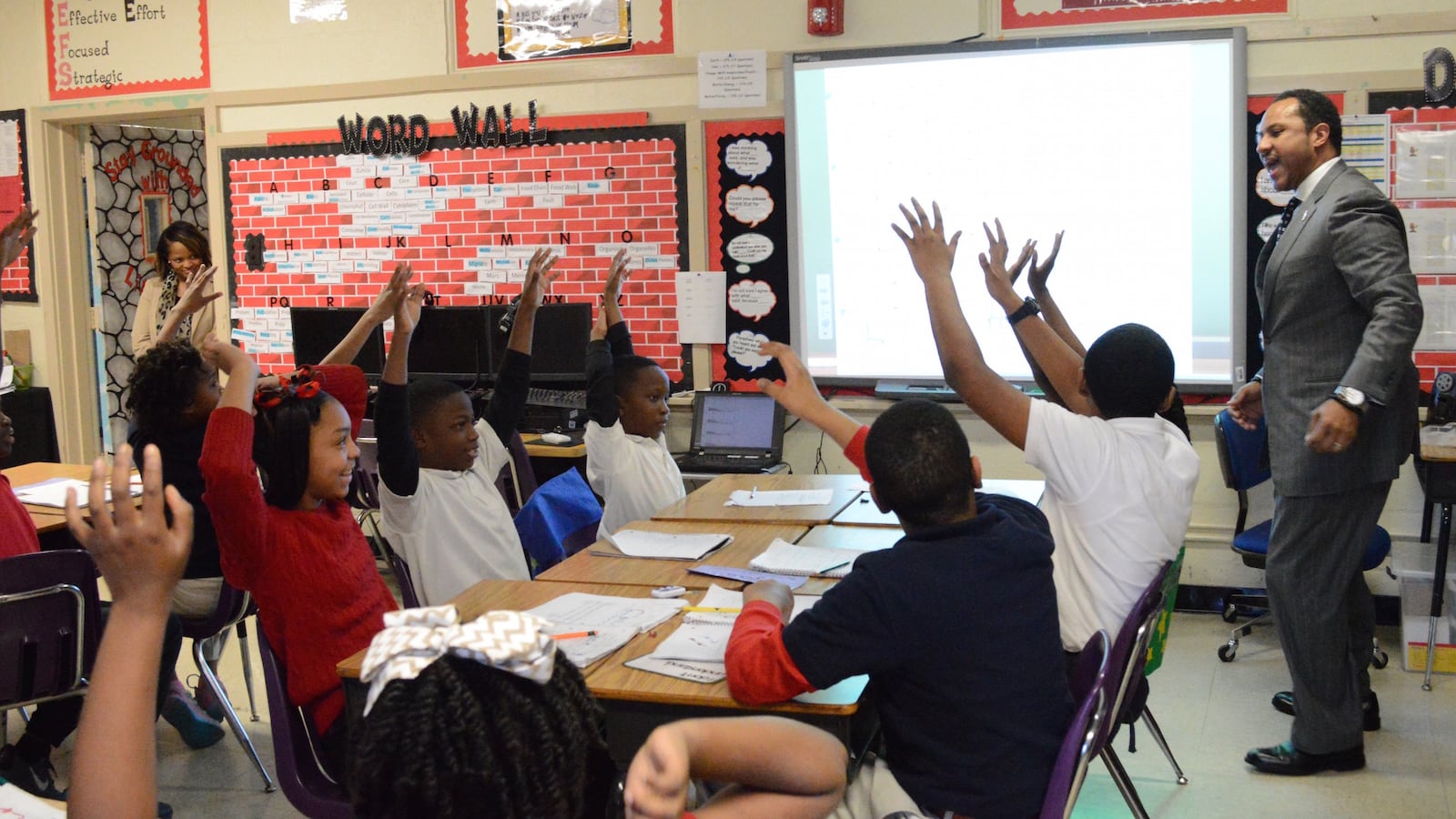When Tennessee launched a massive overhaul of its education system in 2011, the biggest outcry came from educators upset about the new process for evaluating their work.
Most questioned the fairness and accuracy of capturing good teaching on a scale of 1 to 5. Others called the process burdensome and bewildering. Making student test score data a lynchpin of the change prompted even more concern.
But after six years of rating teachers and refining its process, Tennessee is getting a warmer response from educators about their teacher evaluations.
The state’s latest educator survey, released on Wednesday, shows that 74 percent of teachers found evaluations helpful last year in improving their teaching, almost double from 2012. First-year teachers were especially positive, with 85 percent giving the process good marks.

The results are encouraging for state, district and school leaders who have sought to make the evaluation process a tool to promote better teaching, rather than just a personnel-related checklist for both principals and teachers.
“This shows a huge positive shift in teachers’ perception of the evaluation system and its impact,” said Jason Grissom, an associate professor at Vanderbilt University who helped design the survey and collect the data.
“Educators are viewing evaluations as less about judgment of their performance and more about identifying the areas where they can improve. And schools are figuring out how to provide targeted support and professional learning opportunities.”
Still, a fourth of the state’s teachers say the evaluation isn’t helping them improve — and that’s not just from educators who received low scores.
Teachers who found the evaluation most useful also reported receiving specific feedback from administrators, along with classroom materials, access to staff expertise, and adequate time to collaborate and prepare.

The race to transform teaching
Spurred by a half-billion-dollar influx of funding through the federal Race to the Top competition, Tennessee has been a national leader in transforming its teacher evaluations. Its system combines student growth from test scores, classroom observations by administrators and, for teachers in non-tested grades and subjects, school- and district-wide measurements of growth on other kinds of assessments and student work.
And as state tests — and new evaluation systems that rely on them — have faced pushback across the country, Tennessee has mostly stuck with its strategy. (The state did temporarily reduce the weight of test scores in the transition to a new standardized test.)
But the road to the new, tougher evaluation model has been bumpy.
Critics blame the process, especially the student achievement component, for an exodus of teachers from the profession. Teachers complained that feedback from classroom observations was initially fuzzy, and its misalignment with student growth results has led to ongoing changes in training and coaching for evaluators.
“Teachers have never been opposed to being evaluated. They just want a system that accurately identifies the areas in which they are excelling and the areas where they could improve,” said Barbara Gray, president of the Tennessee Education Association, the state’s largest teacher union.
Leaders of the Professional Educators of Tennessee say there’s still lots of room for improvement.
“We hear from our members that evaluators are better trained today and provide better feedback,” the group said in a statement. “We must continually look at the element of support provided by districts to teachers.”
Lagging professional development opportunities are a key shortcoming identified in the educator survey. A third of teachers report not receiving any feedback on their classroom evaluations, and half of the state’s teachers reported that they take part in training once a month that’s a waste of time. They say it’s usually prescribed by their school or district.
That statistic troubles Grissom.
“Part of the purpose of evaluations is to create growth opportunities,” he said. “Professional learning is the big lever that schools and districts can pull to move the needle on instruction.”
A statewide snapshot
Conducted last spring, the survey is Tennessee’s most comprehensive tool for gathering feedback from its educators.
Responses were up by more than 5,000 educators this year, representing 56 percent of the state’s teachers and 60 percent of its administrators. District and school-level data is available if their response rate was 45 percent or more.
You can find the state’s report about the survey here.

